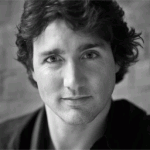
New leaders could jump start federal and provincial Liberal parties' revival.
by Geoffrey Stevens
The year 2013 promises to be a definitive year for Liberals in Canada as the memory of past glory collides with the hard reality of the present.
Canadian Liberalism use to be described as the most successful political movement in the Western democracies. Much of the reputation was earned by the federal Liberal party and its succession of governments in Ottawa, but some of it rubbed off on provincial Liberals, too. That was in the olden days, the 20th century.
Today, Liberals are a third choice in Ottawa and an afterthought in most provinces. If the universe continues to unfold the way it has been, the once mighty Liberals could shortly be reduced to just one of the 11 governments in Canada — in Prince Edward Island.
It may not be too late, however, to revive the Liberal parties in Ottawa and Queen’s Park where impending leadership conventions offer the opportunity — and impetus — for renewal.
It is always a mistake, though, to write off the Liberals. Readers with longer memories will recall how quickly the Grits rose again after being obliterated by John Diefenbaker’s Progressive Conservatives in 1958. Four years later, they were competitive; one year after that, they were back in power.
On the other side of the political coin, the Tories were given up for dead following the Mulroney years when they won just two seats in the 1993 federal election. It took the rise of the Reform party, the birth of a reconstituted Conservative party, the arrival of Stephen Harper — plus the Liberal sponsorship scandal — but 13 years after the disaster of 1993, the Tories were back in power. Five years later, they had a majority government.
All it took on both sides of the political coin was time and a willingness to renew their party (the Liberals in the 1960s and the Tories in the 2000s).
It may be too late to save Christy Clark’s Liberal government in British Columbia. It is consistently behind in the polls, and a provincial election is scheduled for May 14. It may not be too late, however, in Ottawa and Queen’s Park where impending leadership conventions offer the opportunity — and impetus — for renewal.
The Ontario Liberals will choose a successor to Dalton McGuinty on the last weekend of this month. There are seven candidates, but the race has developed into a surprisingly desultory affair, almost totally free of clashes over policies or personalities. The absence of passion is odd, given that the prize is the keys to Canada’s largest and (still) most important province. (It’s as though the fable of the tortoise and the hare has been recast into a saga of seven tortoises with no hare.)
Nevertheless, the winner will inherit a minority government, and, with the grace of the NDP, will have enough time to start the renewal of the government and Liberal party. As long as the polls show Tim Hudak and his Tories in the lead, the NDP will be anxious to avoid forcing an election.
At the federal level, having burned through two leaders since 2006 (Stéphane Dion and Michael Ignatieff) and one interim leader (Bob Rae), the Liberals are set to try again. The deadline for entries is this coming Sunday with the leadership vote set for April 14. As of the moment, there are seven candidates. Barring late entries, it will be a race between one hare and six assorted tortoises.
The hare, of course, is Justin Trudeau. He has led since October when he entered the race. An Ipsos Reid poll last week asked respondents (not just Liberals) who they expected to win. Sixty-nine per cent named Trudeau; 19 per cent chose former astronaut Marc Garneau; no other candidate got more than 5 per cent.
Another poll, by Angus Reid, reported that 42 per cent of decided voters said they would vote Liberal if Trudeau were the leader. That’s 20 points higher than the party’s current standing in the polls. The other candidates didn’t move the numbers.
Choosing a high-profile leader would not transform a third-place party into a government party, but it could jump-start the process of renewal.
© Copyright 2013 Geoffrey Stevens, All rights Reserved. Written For: StraightGoods.ca
 Cambridge resident Geoffrey Stevens, an author and former Ottawa columnist and managing editor of the Globe and Mail, teaches political science at Wilfrid Laurier University and the University of Guelph. He welcomes comments at the address below. This article appeared in the Waterloo Region Record and the Guelph Mercury.
Cambridge resident Geoffrey Stevens, an author and former Ottawa columnist and managing editor of the Globe and Mail, teaches political science at Wilfrid Laurier University and the University of Guelph. He welcomes comments at the address below. This article appeared in the Waterloo Region Record and the Guelph Mercury.
Sorry, the comment form is closed at this time.